Torn Memories of Nanjing is a film of genre Documentary
Torn Memories of Nanjing (2009)

If you like this film, let us know!
- Infos
- Casting
- Technical infos
- Photos
- Videos
- Film quotes
- Characters
- Music
- Awards
Length 1h24
Genres Documentary
Torn Memories of Nanjing (南京 引き裂かれた記憶) is a 2009 Japanese documentary film by Japanese activist Tamaki Matsuoka. On March 28, 2010 it was shown at the Hong Kong International Film Festival. It includes interviews with Japanese veterans who admit to raping and killing Chinese civilians, and accounts by Chinese survivors.
^ Lee, Min (March 31, 2010). "New film has Japan vets confessing to Nanjing rape". Salon/Associated Press.
^ "Japanese vets admit on film to Nanjing atrocities". CBC News. March 31, 2010.
^ Takehiko Kambayashi (March 30, 2010). "Japanese director documents accounts of Nanjing Massacre". The China Post.
Comments
Leave comment :
Suggestions of similar film to Torn Memories of Nanjing
There are 8965 with the same cinematographic genres, 10310 films with the same themes (including 71 films with the same 6 themes than Torn Memories of Nanjing), to have finally 70 suggestions of similar films.If you liked Torn Memories of Nanjing, you will probably like those similar films :
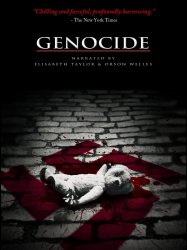
Genocide (1982)
, 1h30Origin USA
Genres Drama, War, Documentary, Historical
Themes Films about racism, Films about religion, Documentary films about racism, Documentary films about law, Documentary films about war, Documentary films about historical events, Documentaire sur une personnalité, Documentary films about religion, Political films, Films about Jews and Judaism, Documentary films about World War II
Actors Elizabeth Taylor, Orson Welles
Rating72%





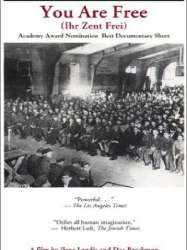
You Are Free (1983)
, 20minutesGenres Documentary
Themes Films about racism, Films about religion, Documentary films about racism, Documentary films about law, Documentary films about war, Documentary films about historical events, Documentaire sur une personnalité, Documentary films about religion, Political films, Films about Jews and Judaism, Documentary films about World War II
Rating67%






The Eye of Vichy (1993)
, 1h50Directed by Claude Chabrol
Origin France
Genres Documentary
Themes Films about films, Films about racism, Films about religion, Documentary films about business, Documentary films about the film industry, Documentary films about racism, Documentary films about law, Documentary films about war, Documentary films about historical events, Documentaire sur une personnalité, Documentary films about religion, Political films, Films about Jews and Judaism, Documentary films about World War II, Documentary films about films, Histoire de France, L'Occupation allemande en France
Actors Michel Bouquet, Brian Cox
Rating71%





Le film propose une sélection des actualités du régime de Vichy (d'août 1940 à août 1944) montée de manière chronologique. Aucun commentaire ne les accompagne. Le film « n'en a pas besoin », comme l'a expliqué Chabrol lors de la présentation de son travail.

Tokyo Trial (1983)
Directed by Masaki Kobayashi
Genres War, Documentary
Themes Documentary films about law, Documentary films about war, Documentary films about historical events, Documentaire sur une personnalité, Political films, Documentary films about World War II
Actors Kei Satō
Rating76%





L'un des principaux documentaires sur un chapitre spécifique de l'histoire moderne du Japon, ce film sur le procès des militaristes japonais accusés de crimes de guerre est excellemment traité par le réalisateur Masaki Kobayashi.

Gai Shanxi and Her Sisters (2007)
, 1h20Genres Documentary
Themes Films about slavery, Documentary films about law, Documentary films about war, Documentary films about historical events, Documentaire sur une personnalité, Political films, Documentary films about World War II

A Film Unfinished (2010)
, 1h29Origin Israel
Genres Documentary, Historical
Themes Films about films, Films about racism, Films about religion, Documentary films about business, Documentary films about the film industry, Documentary films about racism, Documentary films about law, Documentary films about war, Documentary films about historical events, Documentaire sur une personnalité, Documentary films about religion, Political films, Films about Jews and Judaism, Documentary films about World War II, Documentary films about films
Actors Alexander Beyer, Rüdiger Vogler
Rating73%





Ce sont des séries de bobines de films de 35 mm allemandes, anonymes, sans générique, portant la seule inscription : Das Ghetto, retrouvées dans les années 1950 qui sont à l'origine du film de Yahel Hersonski. Ces bobines constituent un « documentaire » allemand sur le ghetto de Varsovie durant la Seconde Guerre mondiale. Dans les années 1990, la découverte d'une bobine manquante viendra éclairer la propagande qui se cachait dans les premières images retrouvées et le véritable but des Allemands qui réalisèrent ces images.

The Final Journey (2010)
, 2h8Directed by R. J. Adams
Origin USA
Genres Documentary
Themes Films about racism, Films about religion, Documentary films about racism, Documentary films about law, Documentary films about war, Documentary films about historical events, Documentaire sur une personnalité, Documentary films about religion, Political films, Films about Jews and Judaism, Documentary films about World War II
Actors Rob Adams, Kelly Crean
The two-hour-long film utilizes a then and now format that blends first-generation archival film with current HD footage of each of the former Nazi camps as they are today and the how and who they appeared during the Third Reich.
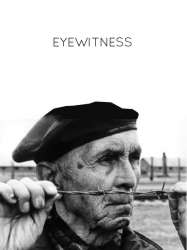
Eyewitness (1999)
Origin USA
Genres War, Documentary
Themes Films about racism, Films about religion, Documentary films about the visual arts, Documentary films about racism, Documentary films about law, Documentary films about war, Documentary films about historical events, Documentaire sur une personnalité, Documentary films about religion, Political films, Films about Jews and Judaism, Documentary films about World War II
Rating68%





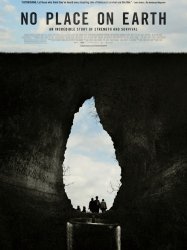
No Place on Earth (2012)
, 1h23Origin USA
Genres War, Documentary
Themes Films about racism, Films about religion, Documentary films about racism, Documentary films about law, Documentary films about war, Documentary films about historical events, Documentaire sur une personnalité, Documentary films about religion, Political films, Films about Jews and Judaism, Documentary films about World War II
Rating70%





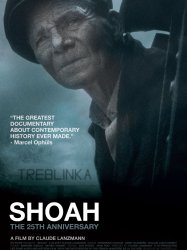
Shoah (1985)
, 9h26Directed by Claude Lanzmann
Origin France
Genres Documentary, Historical
Themes Films about racism, Films about religion, Documentary films about racism, Documentary films about law, Documentary films about war, Documentary films about historical events, Documentaire sur une personnalité, Documentary films about religion, Political films, Films about Jews and Judaism, Documentary films about World War II
Actors Claude Lanzmann
Rating86%





The film is concerned chiefly with four topics: Chełmno, where mobile gas vans were first used by Germans to exterminate Jews; the death camps of Treblinka and Auschwitz-Birkenau; and the Warsaw Ghetto, with testimonies from survivors, witnesses, and perpetrators.
 Connection
Connection